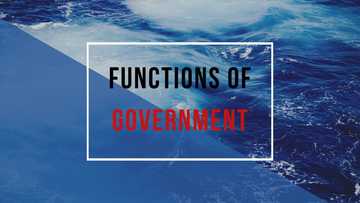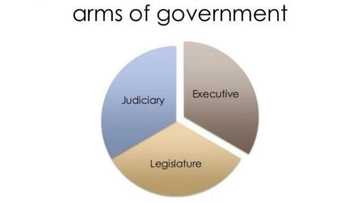8 facts about unitary system of government
Unitary form of government is a system in which all powers are centralized in the hands of a central government that controls the whole state in totality.
Although the state is divided into different units, these divisions are administrative in their nature.
Also the sub-division form the state completely work under the supervision and control of the central government.
In unitary form of government, the political authority is centralized. A unitary state is useful in those areas where there are no strong nationalities or in the small states.
Below are important facts about unitary system of government:
1. Centralization of powers
In unitary system, all powers are centralized in the hands of the central government and only center is the reservoir of all state powers. In this system, there is no a province or provincial governments and constitution empower the central government to legislate, execute and adjudicate with full might.
READ ALSO: Six burnt to death as petrol tanker explodes in Cross River
There is no any other institution to share governmental powers with the central government. On one side, central government has full powers to rule without any external pressure and runs the state administration with confidence without any fear and terror.
On the other hand, the rulers exercise their powers in absolute way without any check. Centralization of powers is itself an administrative problem.
However, in many unitary states, there is local government system arrangement but powers are delegated to these units with strict central control or supervision.
2. Single and simple government
Unitary form of government is very simple system. With the exception of Britain, there are neither provincial assemblies and executives nor the upper chambers at the center. There is a single central government at the center.
There is unicameral legislature popularly elected. Central legislature is to legislate, executive to execute and judiciary to adjudicate without any share.
Their expenses are less and state is run with a unified command. Upper chambers are usually expensive and' weak states cannot afford it expenses. So, it is a simple and understandable system. The common citizens easily, understand its structure and powers.
READ ALSO: Hoodlums launch brazen attack in Abia; burn down police station (photo)
3. Uniformity of laws
Another characteristic of unitary form of government, that laws of unitary system, unlike federation, are uniform because laws are made only by a single central government for the whole state.
Laws made by the centre are equally enforced in the rest of the state without any territorial distinction while in federation nature of law varies from province to province.
So, uniformity of laws in the unitary set-up is according to the principles of justice and nature of human beings. In federation, sometimes sharp contrast is seen in the laws of the same nature, which complicates the situation.
4. No distribution of powers
Constitutions of the federal form of state distribute powers between the centre and the provinces. In unitary system, there is no any list of distribution of powers in the constitution.
All powers belong to the central government. In this system government is not in the grip of powers distribution. It converts government attention on development because government is free of this headache.
5. Flexible constitutions
The constitutions of the unitary states are ever flexible in nature. A rigid constitution is required only in federation in order to establish firm and safe relations between the centre and federating units. Constitution of unitary system has an advantage that it may be changed according to the needs of time and changing circumstances.
READ ALSO: Gunmen kill Miyetti Allah official for exposing criminals
A constitution is a document necessary to run a state according to the changing orientations. People's desires change with the passage of time and constitutions are amended accordingly. Its flexibility paves way for its progressiveness.
Constitutions of the unitary systems are evolutionary and may face any immediate situation.

6. Despotism attribute unitary state
It is one of the important characteristics of this system that it may become despotic when the rulers are not faithful and patriotic.
All powers are in the control of the centre and there is no check upon the exercise of these unlimited powers. It becomes absolute and state powers may be abused. It lacks internal check system.
7. Responsibility
This system is more responsible than federation. It is an important principle of this form of state that responsibility is fixed in the defined institutions.
Central legislature is responsible for legislation, executive for implementation and judiciary for adjudication.
PAY ATTENTION: Install our latest app for Android, read best news on Nigeria’s #1 news app
These institutions are accountable for their constitutional responsibilities and therefore they try their best to remain within the circle of the law of the land.
8. Local government institutions
In unitary form of government, it has been observed that powers are ill the grip of the urban bureaucracy and this government is often limited to cities only for government has no access to far and remote rural areas.
To have access to rural areas, central government manipulates the affairs through local government institutions.
Local government institutions are too strong and effective in this system for instance, local governments in China and Great Britain are too powerful.
Powers are delegated to these institutions and financial support is provided to manage their affairs through elected local representatives within the guidelines of the central government.
There is light at the end of the tunnel - First class traditional ruler Ooni of Ife on Legit.ng TV
Source: Legit.ng







